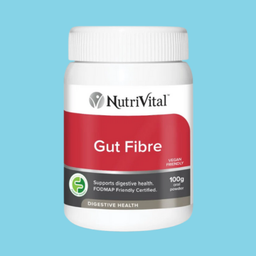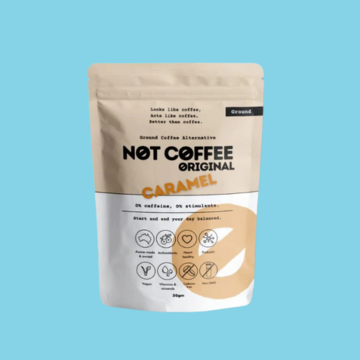What is fermentation and why is it good for you? Go Vita investigates the health benefits of an array of fermented foods, from sauerkraut to kimchi, and kombucha to kefir.
Fast becoming a hot topic in nutrition, fermented foods and drinks, have been consumed for centuries around the world as much for their health-giving qualities as taste and longevity. Before the days of refrigeration fermenting was a means of preserving food to help make it last longer, while remaining nutritious.
What is fermentation?
Fermentation is a natural process. Yoghurt, bread, beer and wine all go through a stage of fermentation when they are being produced.
In short, fermented foods have been through a process in which added microorganisms such as bacteria, yeast or fungi, feed on organic compounds – usually carbohydrates such as sugar and starch – and convert them into alcohol or acids.
Not only does this process preserve the food, but it also creates beneficial enzymes, increases vitamin content, especially B vitamins and strains of good bacteria known as probiotics.
While natural fermentation preserves many nutrients in food, it also helps break some down to a more digestible form. This, along with the multitude of probiotics created during the fermentation process, explains a link with improved digestion.
Fermenting also helps to reduce cooking time in foods that are difficult to digest or unpalatable raw.
With more than 70 percent of our immune system in the gut, a healthy gut is a prerequisite for optimal health and one of the best ways to ensure intestinal health is to enjoy food rich in probiotic and prebiotics.
An additional benefit may come in the form of a new study which shows fermented food intake may be linked with a decrease in anxiety symptoms.
What foods?
Kimchi (a traditional Korean side dish of fermented vegetables), sauerkraut, dill pickles and other vegetables can be fermented using lactic acid fermentation where lactobacilli bacteria convert the natural vegetable sugars into lactic acid.
Vegetables and spices are mixed with salt or placed in brine. Salt inhibits the growth of unwanted organisms until the acid produced by the lactobacilli lowers the pH enough to inhibit growth and spoilage. The end result is rich in beneficial microbes. However, if the product is pasteurised for canning or bottling, (often the case in supermarket sauerkraut) these helpful organisms are killed. Lacto-fermented vegetables may be better purchased in health stores, as supermarket products have often been preserved using vinegar rather than fermentation. Another word of warning, where salt has been used in lacto-fermentation, sodium levels can be very high, so be sure to check labels.
Currently popular among health enthusiasts are kombucha tea and kefir, a yoghurt-like drink. Slightly fizzy kombucha is made from sweetened black tea, fermented with yeast and bacteria and served cold. The yeast turns sugar into alcohol and carbon dioxide and bacteria convert the alcohol into acetic acid, giving it a sour taste. A small amount of alcohol may remain.
Kefir is a carbonated and slightly alcoholic fermented milk drink like thin yoghurt. Produced using a lactobacilli bacterial culture and also yeast, it can contain fine lumps called grains which can be harvested to start the next batch.
The benefits of fermented foods
- A healthy gut and immune system. Fermented foods contain probiotics which help restore balance in the gut and aid digestion and immune health.
- Absorption of nutrients. Having the proper balance of gut bacteria and sufficient digestive enzymes allows the body to absorb more nutrients from foods consumed.
- Inexpensive. People often say eating well is costly, but fermented foods and drinks are easy and relatively cheap to make at home.
- Saves waste. Fermenting preserves food. Lacto-fermentation allows storage for longer periods without a loss of nutrients.
- May help reduce anxiety. Studies suggest probiotics and prebiotics alter the gut microbiota which may influence neuropsychological conditions.
A taste of kefir
Kefir is a fermented milk drink originating from Turkey.
1. Stir contents of 1 sachet Nature’s Goodness Kefir Turkish Yoghurt Probiotic into 1 litre of milk.
2. Leave for 24-36 hours at 20oC or until kefir starts to settle
3. Then refrigerate for 12 hours. The kefir is ready to drink when it has a consistency like thin yoghurt.
4. For a great tasting smoothie: blend a cup of kefir with a large banana, a cup of frozen berries and a tablespoon of honey.
Note: remember to collect half a glass of kefir to use for a subsequent inoculation of 1 litre of milk. Repeat up to another three times to make 5L kefir total.

